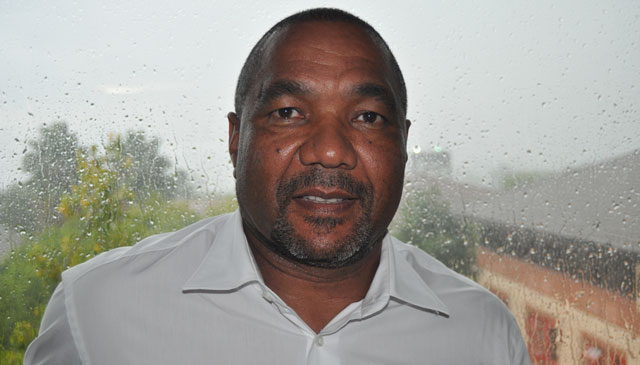
StarSat, the pay-television platform previously known as TopTV, will emerge as a “serious competitor” to MultiChoice, the Naspers subsidiary that owns the dominant DStv service.
That’s the word from Peter van den Steen, who is overseeing the business rescue of StarSat parent On Digital Media (ODM). “We’re going to sort out the issues around content and the richness of the offering, and then we’re back on track again,” Van den Steen says.
“Every week, the product we are putting out on TV screens is a little better,” he says. “We will slowly improve the value proposition and in time — in 18 to 24 months from now — we will be on track as an organisation, as a business offering great value to its customers, and a serious competitor in an environment that needs a competitor.”
Under the business rescue, entered into in October 2012 after ODM ran into financial difficulty, China’s StarTimes — which already operates a dozen pay-TV networks across Africa — is acquiring a 20% stake in the business.
That’s the maximum permissible under South Africa’s broadcasting laws. However, StarTimes has a 65% economic interest in StarSat under a proposed shareholders’ agreement, meaning it will participate in 65% of any future profits.
StarTimes has named Sophia Zhang as ODM’s new CEO, although interim CEO Eddie Mbalo will continue to serve alongside Zhang until the business rescue process has been concluded or until there has been significant progress towards its implementation. “I will be there as long as Peter wants me to stick around,” Mbalo tells TechCentral.
Mbalo says he is “happy” that it’s been possible to save ODM. “We could have liquidated this business a long time ago,” he says. “We should all be proud that we are going to have a business rescue that is going to be successful.”
Although ODM has suffered a decline in subscriber numbers, it hasn’t been as bad as management had forecast. “If it wasn’t for the creditors and the loyalty of the subscribers, we would never have been able to do this,” Van den Steen says.
Mbalo says StarSat has between 100 000 and 120 000 paying subscribers, down from between 130 000 and 150 000 two years ago. But this has been in the absence of marketing campaigns, which will be reintroduced as the business rescue plan gets nearer to its conclusion.
There’s still much that has to be done, though. Van den Steen says a string of agreements must be finalised, including a deal with new black economic empowerment shareholders. A major restructuring of the business is also under way.

Under the new structure, ODM is essentially becoming two separate companies, Van den Steen explains. One will house the traditional pay-TV business and the second will house functions that in the past had been outsourced.
ODM’s headcount at the start of the business rescue was 270; it’s now in the region of 210 employees. “These two businesses together will be over 400 people as a result of no longer outsourcing work to overseas companies,” he says.
Another big issue that still needs to be tackled involves securing the necessary regulatory approvals from the Independent Communications Authority of South Africa (Icasa). In January, ODM withdrew an application to transfer its network service licence — one of three licences it holds — to a wholly owned subsidiary (later to be restructured). It did this, according to Van den Steen, following formal objections filed at Icasa by MultiChoice and the SABC.
“The time it would have taken to deal with the objections would have placed a lot of extra risk on the business, risk which right now is not necessary because this issue is not critical. Instead, the company will deal with any challenges to its restructuring at a future, more appropriate date, he says.
Meanwhile, the company has made progress on the legal front after shareholders Mergan Moodley and First National Media Investment Holdings — the latter was until recently headed by ODM founding CEO Vino Govender — dropped lawsuits seeking to interdict and prevent Van den Steen from taking steps to implement the business rescue plan. They have now been ordered to pay ODM’s costs.
ODM remains party to litigation — as a respondent — over the recent launch of three adult channels on its platform.
Three entities, the Justice Alliance South Africa, Doctors for Life International and Cause for Justice, have filed separate applications asking the courts to overturn Icasa’s decision to allow StarSat to broadcast the channels, which include Private Spice, Desire TV and Playboy TV.
Van den Steen says there has been subscriber uptake of the channels, which are available as a separate bouquet, but he declines to reveal numbers. He says StarSat intends marketing the channels more aggressively once the business rescue process is nearer completion.
At the same time, the company is awaiting news of a wide-ranging complaint it filed last year against MultiChoice and subsidiary SuperSport at the Competition Commission.
In the complaint, ODM accuses MultiChoice and SuperSport of anticompetitive behaviour, which it says has made it difficult for it to offer a compelling alternative to DStv. The company had wanted access to the SuperSport 3 and 4 channels, but its complaint says discussions broke down after the SuperSport backtracked on an earlier agreement to make the channels available on ODM’s platform.
It has accused MultiChoice and SuperSport of contravening the Competition Act by refusing to give access to what it believes is an “essential facility” and has said that the companies contravened the act’s prohibition against dominant firms engaging in anticompetitive exclusionary acts.
Mbalo says he remains confident that the commission will still deal effectively with ODM’s complaint. “They do a lot of their investigations below the radar, but when they come out they hit you very hard,” he says. — (c) 2014 NewsCentral Media




